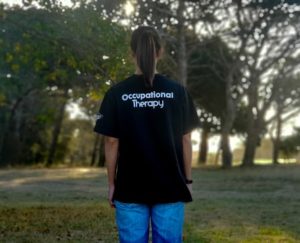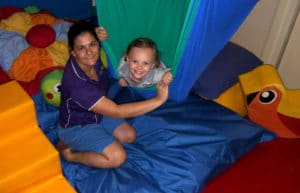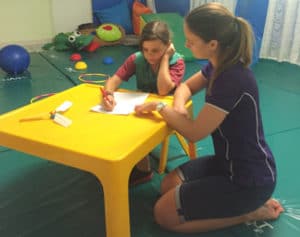Occupational therapy plays an important role in supporting people across the lifespan to participate in everyday activities. From helping children navigate developmental milestones to guiding adults after injury or illness, this service is based on practical, evidence-informed approaches tailored to each person’s needs. For many families, occupational therapy can be part of a broader care plan that supports wellbeing, function, and independence.
Whether addressing behavioural regulation, physical coordination, or challenges with daily living tasks, occupational therapy works across environments like home, school, and community settings. For children, this might involve building confidence in play or classroom skills. For adults, the focus could be returning to daily routines following changes in health. Here are five areas where occupational therapy may be helpful.

Building Independence Through Tailored Daily Living Skills Programs
Independence is often linked to the ability to complete day-to-day tasks. Occupational therapy can support people to develop the routines and techniques they need to manage activities such as dressing, grooming, toileting, or meal preparation. These programs are tailored, taking into account the person’s goals and what matters most in their everyday life.
In practice, this could involve helping a child build confidence in packing their school bag, or supporting an adult who’s relearning how to use kitchen appliances safely. Instead of applying a fixed formula, therapists work collaboratively to identify small, achievable steps toward participation.
Examples of focus areas include:
- Supporting dressing routines using visual cues or step-by-step guides
- Introducing adaptive equipment like modified utensils or shoehorns
- Creating checklists to build independence in morning or evening routines
- Exploring time management tools for organising home tasks or responsibilities
Therapy sessions often explore how activities can be modified or broken down into manageable parts, allowing the person to engage meaningfully at their own pace.
Enhancing Motor Coordination For Physical & Academic Development
Motor coordination involves both fine and gross motor skills, which are essential for many daily tasks. Children may encounter challenges in handwriting, cutting, or balancing, while adults might experience difficulties with mobility or lifting items. Occupational therapy can assist by focusing on foundational skills like strength, stability, and motor planning.
These skills support independence and may also influence participation in social or educational activities. For example, a child who struggles with hand control might find classroom tasks difficult, while an adult recovering from surgery might need support adjusting to changes in balance or mobility.
Areas commonly addressed in therapy include:
- Building pencil grip and control for improved writing fluency
- Strengthening hand muscles through play or tool-based activities
- Supporting gross motor tasks like climbing stairs or lifting groceries
- Practising bilateral coordination using activities that engage both sides of the body
By integrating movement into everyday tasks, therapists help individuals strengthen their confidence and skill in ways that are relevant to their daily routines.
Supporting Emotional Regulation & Behavioural Challenges In Children
Children with behavioural or emotional challenges may find certain situations overwhelming. Occupational therapy supports these children by helping them develop strategies to manage their emotions and improve engagement in home or school settings. This might include using sensory approaches, routine planning, or structured play activities.
Some children may be affected by environmental factors such as noise or unpredictability. Others may experience difficulty processing sensory input, which can impact their responses to social cues or transitions. Therapy can provide a structured space where children explore tools to support their emotional awareness and resilience.
Examples of supports offered might include:
- Creating calm-down routines using weighted items, movement breaks, or quiet spaces
- Exploring visual timers or social stories to support transitions
- Developing consistent activity schedules to support predictability
- Practising turn-taking and social interaction through play-based methods
This approach can complement school-based learning and help children build trust in environments that may have previously felt difficult to manage.
Rebuilding Function After Injury Or Neurological Changes In Adults
Health changes such as stroke, injury, or chronic illness can affect how adults participate in daily routines. Occupational therapy supports these individuals in adapting to new ways of doing things. This might involve using different techniques, modifying the home environment, or gradually working toward a return to daily tasks.
For many people, regaining a sense of control over their environment is an important step toward feeling more settled. Whether someone is adjusting to reduced mobility or managing fatigue, occupational therapy can assist in exploring practical approaches.
Common areas of support include:
- Developing energy conservation techniques to support pacing throughout the day
- Introducing assistive tools like grab rails, one-handed kitchen tools, or mobility aids
- Supporting routine planning after discharge from hospital or rehab services
- Exploring how to navigate stairs, public transport, or shopping with confidence
By focusing on what matters to the individual, therapy can help them take gradual steps toward feeling more capable in their preferred environments.
Improving Social Participation & Peer Engagement
Social participation can be affected by a range of factors—from sensory sensitivity to difficulty interpreting non-verbal cues. For both children and adults, this can lead to reduced confidence in group settings. Occupational therapy can support the development of social interaction skills through structured practice and guided interaction.
In children, this often means exploring social routines through play, helping them understand boundaries, sharing, and turn-taking. In adults, it may involve finding ways to reengage with hobbies or community groups after a period of social withdrawal due to health or mobility issues.
Areas commonly explored include:
- Role-playing interactions to build conversational confidence
- Developing body language awareness and understanding of tone
- Supporting group play skills like following rules or waiting a turn
- Encouraging gradual exposure to social settings in low-stress formats
Occupational therapy can help individuals build self-awareness, feel more prepared for group situations, and participate in social settings with confidence.
Looking for Occupational Therapy Support in Darwin?
At Stepping Stones Therapy, we offer occupational therapy that supports people in building participation in ways that align with their goals and everyday lives. Whether you’re seeking support for yourself, a family member, or a child navigating developmental challenges, we invite you to explore our services.
Give us a call for more information or to book a consultation with our team.
Author

Barbara Kapser
Barbara Kapser is our psychologist at Stepping Stones in Life Therapy Service in Darwin. She's a member with the Australian Psychological Society and the Australian Association for Infant Mental Health.
She specialises in perinatal infant mental health, attachment disorders, developmental trauma and behaviour support.










